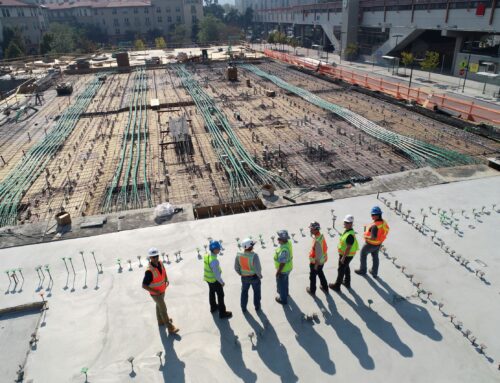
Construction management requires precise planning, coordination, and follow-through. After all, completing a project on time, within budget, and on par with required quality standards doesn’t happen by accident. This article outlines best practices for construction management that will make your project successful.
Have a plan
The first step in any construction project is planning. A good plan outlines the scope of the work, the timeline, the budget, and the required resources. Involve all stakeholders in the planning process so everyone is on the same page. Once the plan is in place, review and update it regularly to reflect any changes.
Set clear expectations
Clear communication is essential to construction management. To avoid problems, set understandable expectations for the project. These expectations should encompass quality, safety, budget, and timeline. Apprise all stakeholders of these expectations and frequently update them regarding changes. Some contracts will fine the construction company for going over budget or failing to meet deadlines. But defining clear expectations from the get-go will bypass such concerns.
Hire the right team
The success of any construction project depends on the team executing it. Therefore, hiring the right team underpins your project’s success. You must select experienced, qualified contractors, architects, engineers, and other professionals. You should also consider candidates’ communication and collaboration skills so your team will operate cohesively.
Communicate regularly
Regular communication remains crucial to any successful construction project. Communication from the construction manager should encompass all stakeholders, including the project owner, contractors, and team members. Inform them of any changes to the project, and address their concerns promptly.
Manage the budget
Since construction projects are expensive, effective budgeting is paramount. A detailed budget covers all costs associated with the project, including materials, labor, and overhead. Routinely monitor the budget and tweak outlay to remain within cost parameters. And leave some buffer room. When projects run into unexpected difficulties, plans must adjust accordingly.
Manage risk
Risk management is also essential to construction management since it identifies and mitigates potential risks. For example, wisdom suggests forming a contingency plan in case weather, delayed deliveries, or other unforeseen events derail your original timeline. And conduct regular risk assessments throughout the project to identify and address potential threats.
Prioritize safety
Safety should be a top priority in construction management. From the outset, educate team members about safety procedures. Then regularly audit processes to ensure everyone meets safety standards. Employees often leave jobs where they feel unappreciated. So, show your workers that you care by prioritizing safety over your bottom line.
Embrace technology
Technology plays a significant role in construction management, too. Project management software, resources, and timelines all depend on technology. Drones, 3D printing, and augmented reality also improve a project’s efficiency and accuracy.
Maintain quality standards
Maintaining quality standards remains critical to construction management. It analyzes materials, equipment, and completed work regarding designated quality standards. To this end, regular inspections are also a must.
Learn from mistakes
Construction projects are complex. Mistakes happen. Learn from these errors so they don’t happen again. Regular project reviews should identify deficient areas so you can address them promptly.
In conclusion, construction management projects require careful planning, coordination, and execution. And by following the outlined practices, you can complete your project safely, quickly, and impressively.






